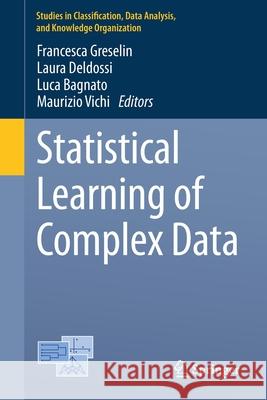Statistical Learning of Complex Data » książka
topmenu
Statistical Learning of Complex Data
ISBN-13: 9783030211394 / Angielski / Miękka / 2019 / 201 str.
Kategorie:
Kategorie BISAC:
Wydawca:
Springer
Seria wydawnicza:
Język:
Angielski
ISBN-13:
9783030211394
Rok wydania:
2019
Wydanie:
2019
Numer serii:
000033895
Ilość stron:
201
Waga:
0.31 kg
Wymiary:
23.39 x 15.6 x 1.17
Oprawa:
Miękka
Wolumenów:
01
Dodatkowe informacje:
Wydanie ilustrowane











